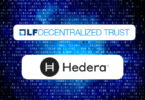The former owner of the Los Angeles Dodgers, Frank McCourt, is investing $100 million in Project Liberty that aims to enable people to move their data and connections across social media apps as opposed to having it stored in a few dominant apps, Bloomberg reported.
A few big companies dominate the social media space, particularly Facebook. These companies have accumulated social connection data creating barriers to entry for potential competitors.
“We live under constant surveillance, and what’s happening with this massive accumulation of wealth and power in the hands of a few, that’s incredibly destabilizing,” said McCourt. “It threatens capitalism because capitalism needs to have some form of fairness in it in order to survive.”
McCourt believes the solution is to use blockchain. The billionaire has appointed Braxton Woodham, the former chief technology officer of the movie ticket website Fandango to build a blockchain-based Decentralized Social Networking Protocol (DSNP). The idea is for the blockchain to store information about people’s social connections so that social media companies can draw data from a common social graph.
Given privacy regulations and the fact that social connections are deeply personal, we suspect the final result may be closer to ideas floated by Jack Dorsey, Twitter’s CEO.
Dorsey has been pushing for a similar project called Blue Sky. His reasoning is that individuals should be able to control their own content, including their list of social connections. But that’s not necessarily the same as storing them on a blockchain.
For example, in one hypothetical design, I might choose to have a public blockchain identifier that may be pseudonymous. But I would privately store the list of connections to my friend’s identifiers. The list would not be on the blockchain, but I can share it with my chosen social media solutions. However, it’s possible to achieve the same aim in a privacy-preserving manner, without the need for the public blockchain identifier.
The point is that through a decentralized social graph there would be less risk for an individual company making decisions about user behavior. For example, if a user posts inappropriate content and is banned from one social media outlet, they can move on to another platform. Using blockchain or decentralized identifiers could enable user-controlled lists of connections that they can take with them, although that wouldn’t stop them from being banned elsewhere.
The effective promotion of the project will naturally be key to its success. The question is whether many users care enough about having their social connections data owned by dominant companies. They are already using Facebook and Instagram regardless, and there is the possibility that they’re not especially interested in making this sector more competitive.
Global software company Block.one started a blockchain based social network called Voice. Block.one is the company behind the EOS blockchain that raised the largest ever ICO of $4 billion.
Voice is different from Project Liberty in that it was initially launched as a social media platform. Now, Voice has pivoted to become an NFT platform. Despite being a different offering to Project Liberty, it’s clear that deep pockets are not enough to build a social network.
Meanwhile, Finnish project Helios, which developed a blockchain platform for sharing and communication, was backed by the EU.






